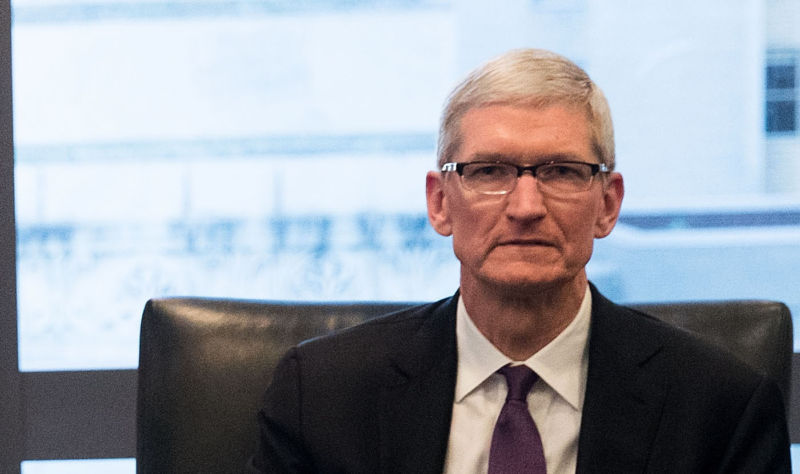
The beginning of 2019 isn't proving to be as fruitful as Apple anticipated. CEO Tim Cook released a letter to investors yesterday that revised the company's guidance for its Q1 2019 performance. Apple now expects a minimum of $84 billion in revenue, down from the $89 billion it projected at the end of the last fiscal year. In response to the news, Apple's stock fell eight percent in after-hours trading yesterday and remains down since the markets opened today.
So what happened? Cook cited a number of factors, including the timing of the newest iPhone launches and supply constraints across some product categories. The new iPhone XS, XS Max, and XR began shipping in Q4 2018, leading to fewer sales to be counted in the first quarter of 2019. As for supply issues, the letter claims that sales of the Apple Watch Series 4, iPad Pro, AirPods, and the MacBook Air were all constrained during "much or all" of the quarter.
China syndrome
But the biggest problems came from lackluster sales in China and equally disappointing iPhone upgrades. Cook wrote that the "magnitude of the economic deceleration" in Greater China took Apple by surprise, resulting in much of its revenue decline. "In fact, most of our revenue shortfall to our guidance, and over 100 percent of our year-over-year worldwide revenue decline, occurred in Greater China across iPhone, Mac and iPad," Cook wrote in the letter.
Cook also cited the trade war between the US and China as another factor. Since trade tensions don't appear to be lessening any time soon, this spells trouble for Apple and other companies that make a lot of money from the Chinese market.
However, Apple continues to be optimistic about China. Cook names the "innovative, creative and vibrant" Chinese developer community as a bright spot, as well as its growing services business and installed-device base in the region.
While China's economy is undoubtedly a big challenge for Apple, possibly more challenging in the long run will be users' attitudes toward smartphone upgrades. Cook named weak iPhone upgrades as a major contributing factor to this quarter's slump. While a number of things can influence a user's decision to upgrade their smartphone, Cook cited Apple's "significantly reduced" iPhone battery replacements as one reason some have chosen to stick with their current models.
Apple's revised battery program began at the beginning of 2018 and lasted just one year. After the company confirmed that it slowed down iPhones as their batteries aged, Apple apologized to customers and discounted out-of-warranty battery replacements from $79 to $29. While we don't have the exact numbers, it's likely that many iPhone customers decided to pay the $30 to extend the life of their current handsets rather than shell out hundreds of dollars for a new model.
The industry as a whole has had to deal with declining smartphone sales for a while now, and Apple isn't immune to that trend. Homogeneity and high prices are big contributors: most flagship smartphones offer similar features to their competitors, especially in terms of hardware. To counteract this, we've already seen OEMs like Samsung plan to throw a whole bunch of new, high-end smartphone models at the market and see which ones stick.
But most of those new Samsung smartphones, as well as those from Apple and other OEMs, will likely cost more than what many are willing to pay. The iPhone X, which debuted in 2017, was Apple's most expensive iPhone ever coming in at $999. iPhone prices continued to climb as the company debuted the XS and XS Max last year, with the latter starting at $1,099. With prices that high, customers are holding onto their smartphones much longer.
In light of the revised guidance, Tim Cook sent a memo to Apple employees. The CEO will hold an all-hands meeting today for employees to discuss the news and take questions.
reader comments
352